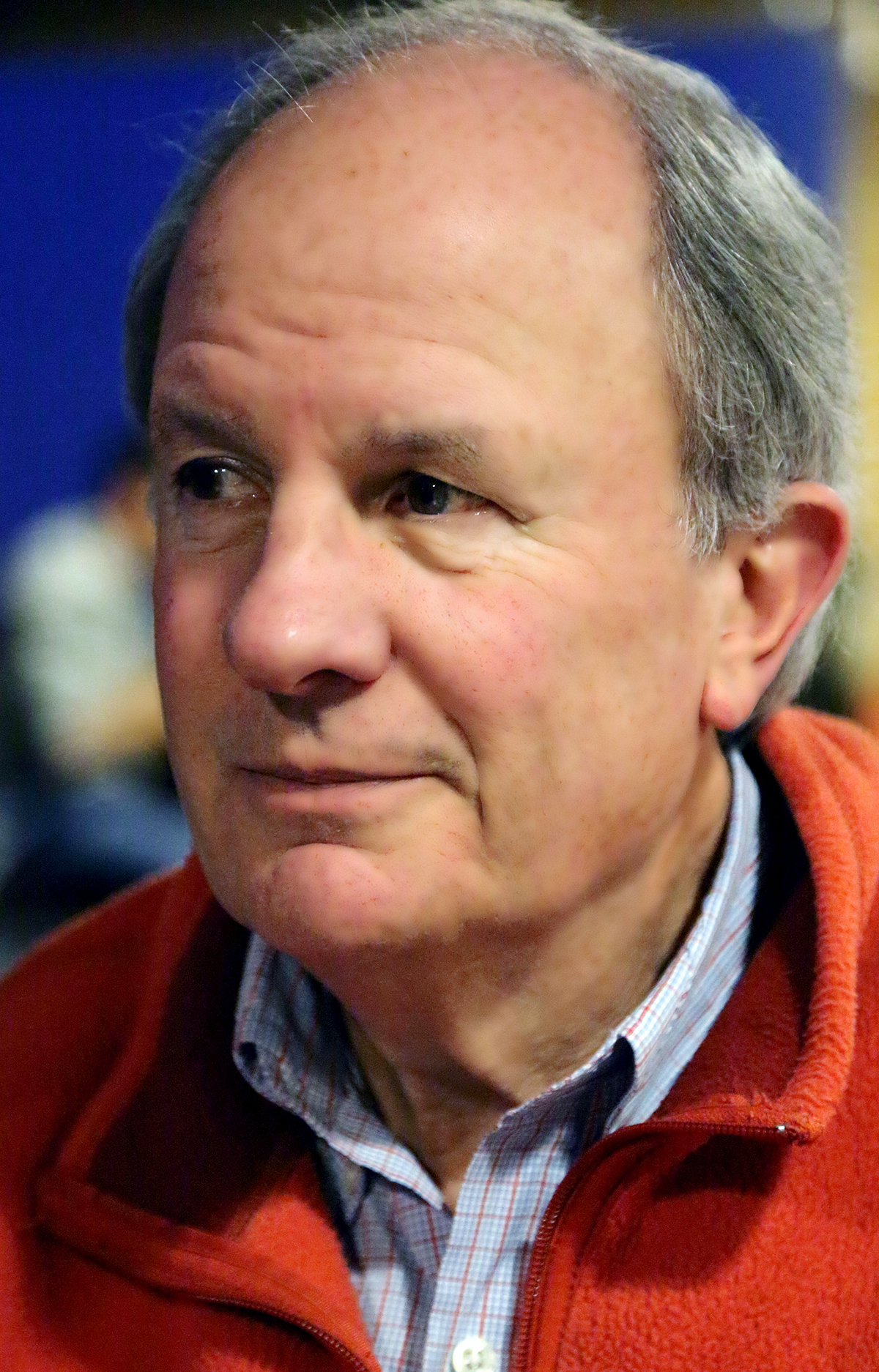The United States Constitution currently has 27 amendments, but author John Thompson has an idea for another one.
He’ll discuss it with his Brown Bag, called “Freedom of the Imagination: The 28th Amendment,” at 12:15 p.m. Friday on the front porch of the Literary Arts Center at Alumni Hall.
Thompson is a novelist who writes for adults as well as younger audiences with his Felony Bay series. The second installment of the series, Disappearance at Hangman’s Bluff, was published in 2014. In addition to his writing, he’s served as a school headmaster and community activist, which explains his interest in his Brown Bag topic.
“It’s really about where we’re going as a nation in terms of literacy and how important it seems to be in the overall educational environment right now,” Thompson said. “I think it’s not only a right for people to be literate; I think it’s also an obligation to be literate.”
Thompson said part of his interest in the subject of literacy and imagination came from reading the book of a friend of his, Ted Dintersmith. Dintersmith co-wrote Most Likely to Succeed: Preparing Our Kids for the Innovation Era with Tony Wagner. The book describes what the two authors “discovered as they talked to employers of what we’d call the ‘growth economy’ in America,” Thompson said.

The general consensus they found, Thompson said, was that those employers wanted people who were able to solve problems collaboratively and creatively, not just memorize and recite information.
The issue, Thompson said, is that America’s traditional educational model tends to focus on memorization as a means of learning.
“It’s a model that was put together by Andrew Carnegie and some other industrialists in the late 1800s, and it’s still functionally pretty much unchanged,” Thompson said. “And it emphasizes memorizing large batches of information. What’s been discovered in scientific studies is that people retain about 18 to 30 percent of all that information they learn, and forget the rest if they don’t use it every day.”
Thompson said the internet has made memorization less important, but the American education system still tends to favor methods of learning that focus on repetition rather than creativity.
“(My lecture’s) called ‘Freedom of the Imagination’ because creativity and flexibility come from developing your imaginative skills,” Thompson said. “Your ability to memorize stuff doesn’t build those skills. And one of my concerns is that simply emphasizing STEM education insufficiently focuses on building imaginative skills in our students.”
For Thompson, he said it all comes back to Thomas Jefferson’s idea that “an educated citizenry is a vital requisite for our survival as a free people.”
It’s an old idea, but Thompson said it has particular relevance in America’s current political climate.
“What you see today is such division in our country, so much rancor and so much disdain for the ‘other’ — and that, to some degree, is a hallmark of illiteracy,” Thompson said. “People have insufficient knowledge and insufficient experience with people who think differently from them.”
Thompson said this ties back directly to reading and literacy, which allows people to experience the world in a way that’s unfamiliar to them. It’s especially important for young readers, he said, because children who aren’t exposed to people from different experiences are likely to think of difference as “gross” or “weird.”
An emphasis on literacy and imagination “teaches them to broaden their horizons, even if they can’t travel to places and see people face to face who are very different from who they are,” Thompson said.
Thompson said he hopes his audience will keep this in mind after his lecture, and think of ways they can get involved. Until this week, he hadn’t been to Chautauqua Institution before, but Thompson said it seems to have the kind of crowd that cares about the world.
“The only defense we have is to expose people to a broader world,” Thompson said. “And literature is the most easily guaranteed way to do that. Not everybody can go to Europe or New York City and learn to accept difference, but we can do it through literature.”




